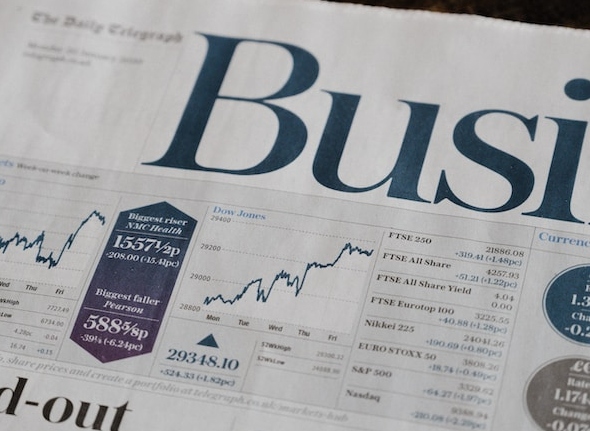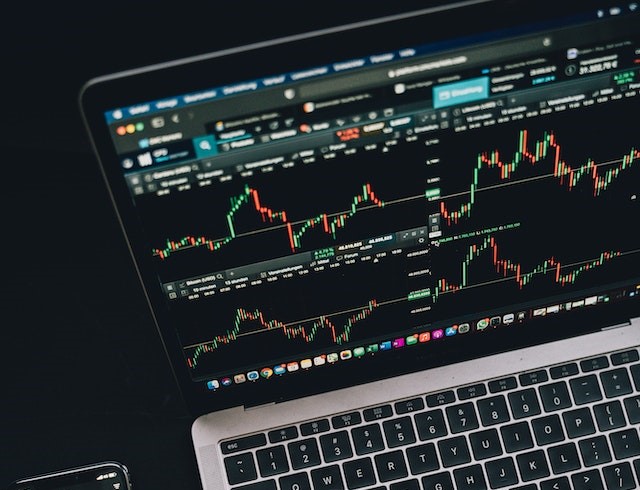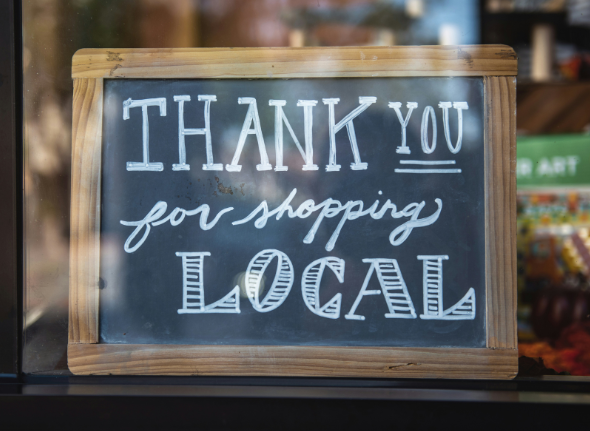What are the key terms to understand the economy?
Inflation? Interest rates? Always hearing people talking about money and the economy but not sure what they mean? Check out our short glossary to understand the basics.


So, what is the economy?
Before we start listing the key terms, let’s cover off what the eocnomy actually is.
The economy is the link between making things, selling them and the supply of money.
To tell how well an economy is doing, you look at things like:
-
- how many people can’t find a job (unemployment)
- how quickly prices in shops are rising (inflation)
- the amount of goods and services being produced (economic growth or GDP)
Signs the economy is doing well are low unemployment and inflation, and an increase in GDP.

Our glossary of key terms
Read our glossary of key terms below to find out some of the important language that could help boost your understanding of the economy.
The Bank of England
The Bank of England is the UK’s central bank. It is in charge of producing bank notes, overseeing payment systems (so you can pay for things by debit or credit card), setting the main interest rate in the UK, and making sure other UK banks follow the rules.
Bonds
Bonds are a way of lending money to the government or a company. If you buy a bond, you can usually get back what you paid for the bond with some interest on top.
Credit
Getting credit or buying something on credit means getting goods or services before you have paid for them, on the understanding you will pay for them later.
In the similar way, a credit card lets you buy something by borrowing money and paying it back later.
This is different from being in credit which means you have money in an account. If your bank account is £50 in credit, it means you have £50.
Debit
Debit is taking money out of an account. So a debit card lets you buy something by taking money from your bank account.
Being in debit is the amount you owe. So if your bank account is £50 in debit, it means you owe the bank £50.
Debt
Money that is owed, often through a loan or unpaid bill.
Exchange Rates
The exchange rate is how much one currency is worth when you exchange it for another.
If the exchange rate for pounds to Euros is 1.14% then for every pound, you’ll get 1.14 Euros (minus any commission, the charge you pay for exchanging your money). Exchange rates can vary, depending on where you exchange your money. You can go online to compare how much different currencies are worth.
Financial Crisis
A financial crisis is when things lose their value quickly, people and businesses are unable to pay their debts, and banks and businesses have a shortage of cash.
The stock market’s value can crash and people cash in their investments or withdraw money from savings accounts.
Financial crises have lots of different causes. There was a significant global financial crisis in 2008 (and a smaller one in 2020, triggered by the pandemic).
Financial Markets
Financial markets are where shares, bonds and currency are bought and sold.
Inflation
Inflation is the increase in the price for goods and services over time. This is sometimes called a rise in the cost of living.
The main measure of inflation is the Consumer Price Index. This tracks the prices for a basket of items typically bought by households.
You can see how prices have changed with the Bank of England’s Inflation Calculator.
Insurance
Insurance is a way of protecting you and/or your things from the risk of loss of damage. You pay a sum of money (called a premium) for a policy. In return, you can get compensation if something goes wrong. For example, if you insure your phone and it gets lost, stolen, or damaged, you could get some money or a new handset. What or how much you get depends on the type of cover you choose.
See Money Saving Expert for information and advice on getting insurance.
Interest Rates
Interest rates tell you the cost of borrowing money or the rewards for saving.
The Bank of England sets interest rates. High-interest rates mean people spend less (as the cost of mortgages and other borrowing is more). This slows down the economy and reduces inflation. Low-interest rates mean people spend more money (as it’s cheaper to borrow and the return on savings is lower). This encourages the economy to grow.
Stocks and Shares
Stocks and shares are units of ownership in certain companies. So if you own shares in a company, you own a part of it.
A company may divide itself into 10,000 shares. The share price refers to the cost of a single share. Shares go up in price when a company is doing well and go down when it is doing badly. Shares are bought and sold on the stock market. People who own shares are called shareholders. Shareholders can make money by selling their shares for more than they paid. They also receive dividends which are a share of the company’s profits. Dividends are typically paid every three months.
Recession
Recession is when the economy shrinks, usually over a sixth-month period. Unemployment goes up, and the housing market and stock market go down which means there may be fewer sales at lower prices.

Our glossary of key terms
Read our glossary of key terms below to find out some of the important language that could help boost your understanding of the economy.
The Bank of England
The Bank of England is the UK’s central bank. It is in charge of producing bank notes, overseeing payment systems (so you can pay for things by debit or credit card), setting the main interest rate in the UK, and making sure other UK banks follow the rules.
Bonds
Bonds are a way of lending money to the government or a company. If you buy a bond, you can usually get back what you paid for the bond with some interest on top.
Credit
Getting credit or buying something on credit means getting goods or services before you have paid for them, on the understanding you will pay for them later.
In the similar way, a credit card lets you buy something by borrowing money and paying it back later.
This is different from being in credit which means you have money in an account. If your bank account is £50 in credit, it means you have £50.
Debit
Debit is taking money out of an account. So a debit card lets you buy something by taking money from your bank account.
Being in debit is the amount you owe. So if your bank account is £50 in debit, it means you owe the bank £50.
Debt
Money that is owed, often through a loan or unpaid bill.
Exchange Rates
The exchange rate is how much one currency is worth when you exchange it for another.
If the exchange rate for pounds to Euros is 1.14% then for every pound, you’ll get 1.14 Euros (minus any commission, the charge you pay for exchanging your money). Exchange rates can vary, depending on where you exchange your money. You can go online to compare how much different currencies are worth.
Financial Crisis
A financial crisis is when things lose their value quickly, people and businesses are unable to pay their debts, and banks and businesses have a shortage of cash.
The stock market’s value can crash and people cash in their investments or withdraw money from savings accounts.
Financial crises have lots of different causes. There was a significant global financial crisis in 2008 (and a smaller one in 2020, triggered by the pandemic).
Financial Markets
Financial markets are where shares, bonds and currency are bought and sold.
Inflation
Inflation is the increase in the price for goods and services over time. This is sometimes called a rise in the cost of living.
The main measure of inflation is the Consumer Price Index. This tracks the prices for a basket of items typically bought by households.
You can see how prices have changed with the Bank of England’s Inflation Calculator.
Insurance
Insurance is a way of protecting you and/or your things from the risk of loss of damage. You pay a sum of money (called a premium) for a policy. In return, you can get compensation if something goes wrong. For example, if you insure your phone and it gets lost, stolen, or damaged, you could get some money or a new handset. What or how much you get depends on the type of cover you choose.
See Money Saving Expert for information and advice on getting insurance.
Interest Rates
Interest rates tell you the cost of borrowing money or the rewards for saving.
The Bank of England sets interest rates. High-interest rates mean people spend less (as the cost of mortgages and other borrowing is more). This slows down the economy and reduces inflation. Low-interest rates mean people spend more money (as it’s cheaper to borrow and the return on savings is lower). This encourages the economy to grow.
Stocks and Shares
Stocks and shares are units of ownership in certain companies. So if you own shares in a company, you own a part of it.
A company may divide itself into 10,000 shares. The share price refers to the cost of a single share. Shares go up in price when a company is doing well and go down when it is doing badly. Shares are bought and sold on the stock market. People who own shares are called shareholders. Shareholders can make money by selling their shares for more than they paid. They also receive dividends which are a share of the company’s profits. Dividends are typically paid every three months.
Recession
Recession is when the economy shrinks, usually over a sixth-month period. Unemployment goes up, and the housing market and stock market go down which means there may be fewer sales at lower prices.

Find out more
BBC Bitesize has a guide on the economy and business.
The Bank of England has a range of explainers on money and how the economy works.
Related

What are unions and why do people join them?
[rt_reading_time...

Why You Should Shop Locally This Small Business Saturday
[rt_reading_time...
